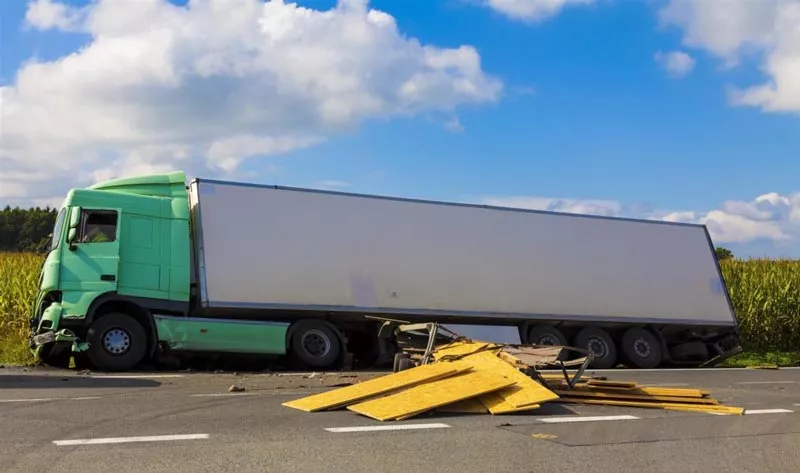Every day in Houston and throughout the country, drivers of all kinds of vehicles take to the roads to commute to work, run errands, or deliver goods across long distances. Whatever their goals, large commercial trucks and passenger vehicles can usually drive side by side without incident. Yet, just like any other type of vehicle, 18-wheeler trucks can (and do) still get into accidents.
When it comes to capturing data on these accidents, 18-wheeler crashes can be generally categorized as “large truck accidents.” The Federal Motor Carrier Safety Association’s Fatality Analysis Reporting System (FARS) defines a “large truck” as any truck with a gross vehicle weight rating (GVWR) exceeding 10,000 pounds. This includes 18-wheelers, which can be as heavy as 80,000 lbs (the legal maximum for total operating vehicle weight).
Whether or not the driver of the 18-wheeler is responsible for the crash, the weight and impact of such a massive vehicle can have severe repercussions for all involved.
A Note on Sources for These Statistics
The crash statistics discussed on this page have been collected from the websites of the National Highway Traffic Safety Administration(NHTSA) and the Federal Motor Carrier Safety Association (FMCSA). As government-funded organizations, both the NHTSA and FMCSA serve as trusted sources for detailed accident statistics and extensive reports.
Notable Trends in Large Truck Accidents Statistics
Take a look at a few broad trends and stand-out statistics:
- Over time, the rates of large truck involvement in both fatal and injury-causing crashes (per 100 million large-truck-miles) have declined overall. Recently, however, they are both showing signs of increase.
– Fatality-related data shows an overall decrease in the rate of fatal crash involvement. Over the last four decades, the rate of large trucks involved in fatal crashes declined from 4.89 in 1975 to 1.46 in 2016. This is an increase from the lowest point of 1.11 in 2009.
– Injury-related data shows that the rate of large trucks involved in injury-causing crashes has also decreased overall, from 4.39 in 1996 to 3.95 in 2016. As with fatal crash involvement rates, the most recent statistic is an increase from the lowest point of 2.14 in 2009. - Roughly one in four fatal large truck accidents took place on an interstate highway.
- 61% of fatal large truck crashes happened in rural regions.
- 95% of fatal accidents involving large trucks happened outside designated work zones.
- In 2014, large trucks comprised 4% of all vehicles involved in crashes that caused injuries and/or property damage.
- 79% of fatal large truck crashes took place on weekdays, and 71% of those weekday crashes occurred between 6 a.m. and 6 p.m. (common workday hours).
Crash Details: What Really Happens on the Road?
Although the broad trends in the data reveal that accidents involving large trucks are significantly lower than in decades past, the involvement rates are still a cause for concern. To learn more about exactly what’s happening in these accidents, one can dive down into the details of the statistics. By understanding the drivers, vehicles, and other factors at play, experts hope to identify new ways to prevent accidents and reduce crash rates.
Who Is Affected by 18-Wheeler Accidents?

The victims of 18-wheeler accidents can be of any age, race, or gender, and may not even be driving at the time of the crash. The following are related insights from the FMCSA’s 1975-2016 data:
- In addition to vehicle occupants, other types of persons killed in large truck accidents include pedestrians, cyclists, and other unidentified non-motorists.
- Although it has gone up and down over time, the total number of fatalities has not changed much. In 1975, the total number of people killed in large truck crashes was 4,483. In 2016, the total was 4,317.
- Most of those killed or injured in such crashes were occupants of an involved vehicle. However, many other individuals outside the vehicles were also harmed. In 2014, 389 non-occupants were killed and roughly 2,000 non-occupants were injured.
What Kinds of Vehicles Are Involved?
There are also a variety of vehicle types involved in 18-wheeler accidents. The following are statistics from the FMCSA’s 1975-2016 data:
- The most common types of vehicles involved in fatal large truck accidents included passenger cars, light trucks, buses, and motorcycles.
- The majority of fatalities occurred in passenger cars (1,525 people in 2016), followed by light trucks (1,288 in 2016).
- Injuries were significantly more common for those in passenger vehicles than in large trucks.
- Overall, most crashes were single-vehicle crashes. However, multiple-vehicle crashes tended to be particularly deadly; in 2014, 81% of fatal large truck accidents were multi-vehicle crashes. Of these, 45% were head-on collisions.
Who Is Driving?
When an 18-wheeler accident happens, it often raises the question of the truck driver’s record. The following are some of the NHTSA’s findings on large truck drivers involved in fatal crashes:
- Large truck drivers involved in fatal crashes had the highest percentage (14.9%) of previous crashes on their driving records than light trucks, passenger vehicles, or motorcycles.
- More than 16% of large truck drivers also had one or more prior speeding violations—about the same as drivers of passenger vehicles.
- Large truck drivers involved in fatal accidents did show a lower likelihood of prior license revocations or suspensions than passenger vehicle drivers (8.9% vs. 14.8%).
Hurt in an 18-Wheeler Accident? Get Help from an Experienced Truck Accident Lawyer
If you’ve been involved in a semi-truck accident, it’s important to make sure that you have the legal representation and support you and your family need during your recovery. With the help of a reliable large truck accident attorney from Johnson Garcia LLP, you’ll receive the legal counsel and support you deserve as a victim.
The experienced attorneys at Johnson Garcia LLP have more than 30+ years of combined legal experience and have been helping victims of commercial truck accidents seek the fair treatment and compensation they need to make a full recovery. As experienced attorneys in personal injury, we’ve assisted in all kinds of accident cases and legal situations, from fender benders with insurance disputes to fatal 18-wheeler accidents in which the truck drivers deny fault.
Whatever your needs are, we’ll help you determine your rights and obligations and help you take the next steps forward. If you’re ready to get started, contact us online or call (832) 844-6700 for your free initial consultation.


